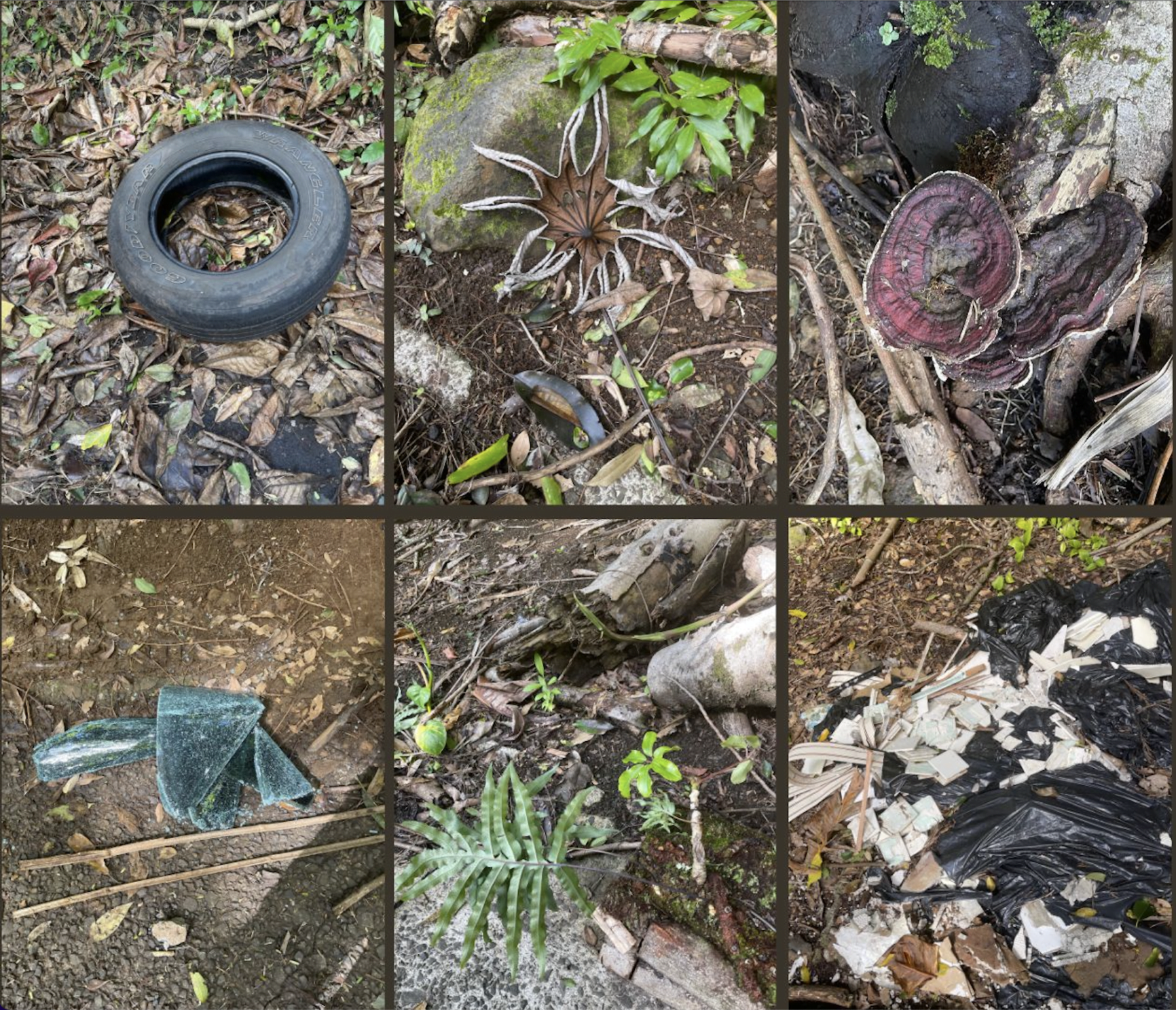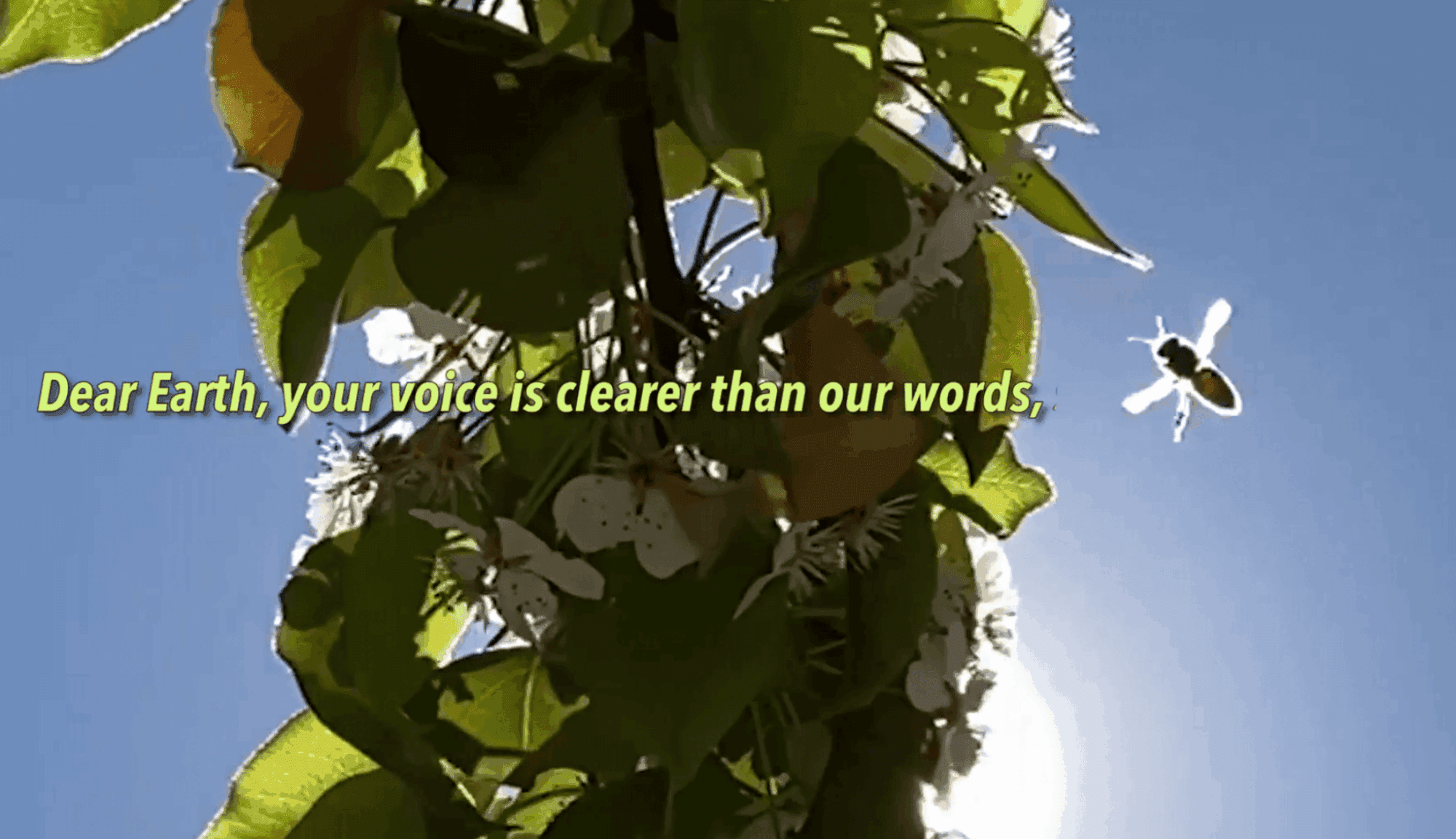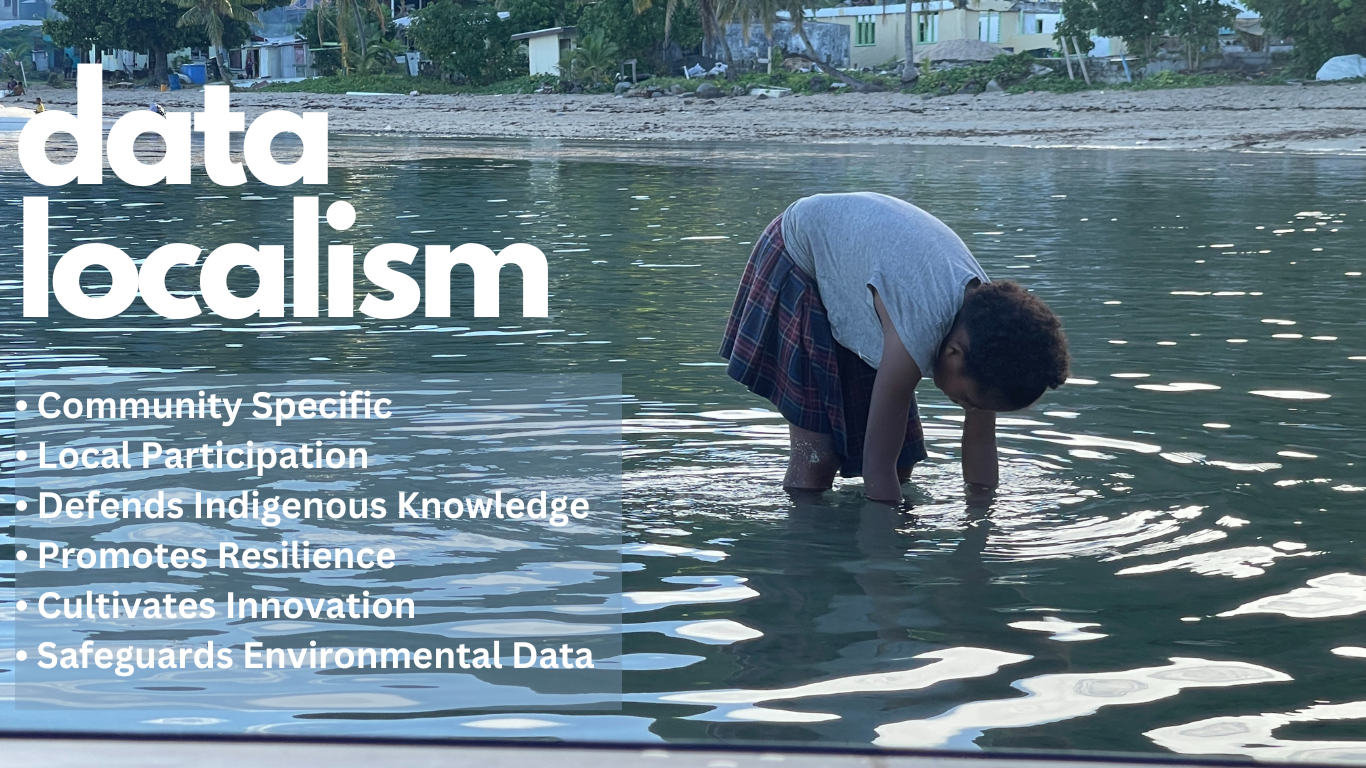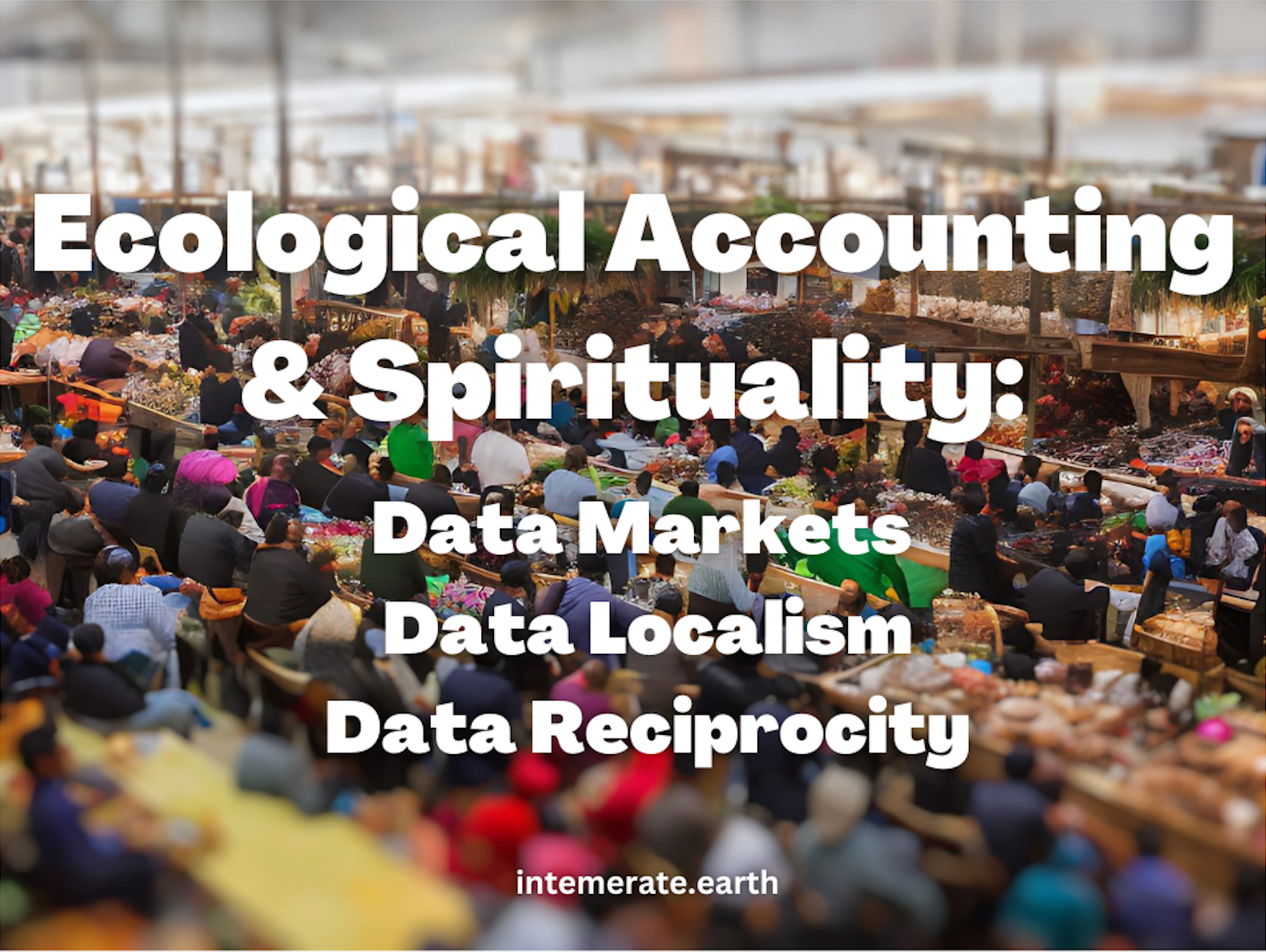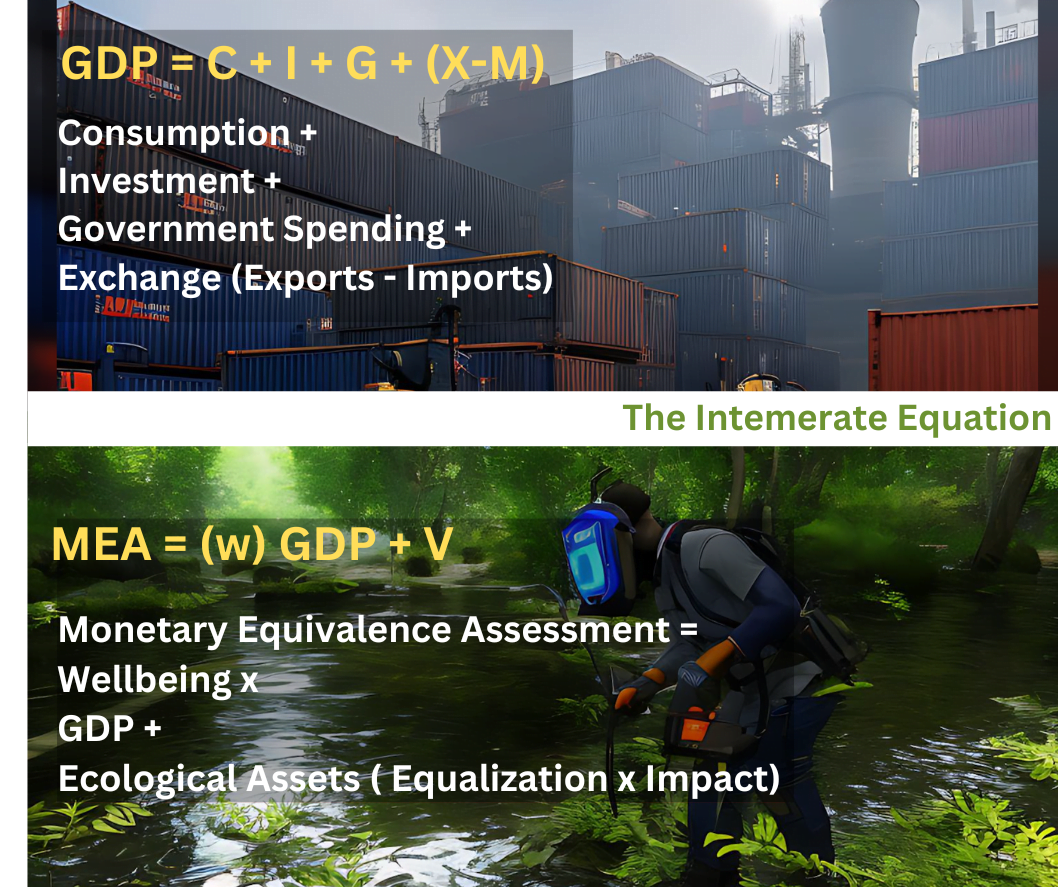Data localism refers to the concept of generating, storing, and processing data within a local or regional context. In the context of ecological accounting, this approach can provide numerous benefits and provide relevant jobs in both the public and private sectors. Data stewardship is a service that includes conducting inventories, collecting statistics, publishing data, determining conditions and trends, examining and analyzing changes, summarizing data, describing, compiling, measuring, researching, monitoring, and managing lists of information. These are jobs that belong to the community.
Relevance and specificity: Local data can capture the specific ecological features and characteristics of a given area, making the data more relevant and specific. This can result in more accurate assessments of the ecological value of an area.
Encourages local participation: When data is collected and processed locally, it can encourage community engagement and participation. This can lead to a greater sense of ownership and commitment to ecological preservation.
Speed and responsiveness: Local data can be collected, processed, and applied more quickly, making it more responsive to changes in the local environment.
Avoidance of data colonialism: In the context of global data flows, there’s often an unequal relationship between data-rich developed countries and developing countries that may not have yet developed the capacity to assess their data. Data localism can help to address this imbalance, enabling local communities to maintain control over their ecological data before it is absorbed into foreign accounts.
Tailored solutions: By focusing on local data, ecological strategies can be tailored to the specific needs of each area, leading to more effective solutions. This approach can also lead to more sustainable outcomes, as local conditions and resources are taken into account.
Promotes resilience: By relying on local data, regions can become more self-sufficient and resilient, rather than depending on external data sources that may not always be available or reliable.
Fosters innovation: Dealing with local data can stimulate innovation in data collection, storage, and processing techniques. This can contribute to the development of new methods and technologies that are better suited to the local context.
However, while data localism can provide many benefits in terms of ecological accounting, it’s also important to consider potential challenges. These might include the need for technical expertise and resources to collect and process data, the potential for local biases in data collection and interpretation, and the need for frameworks to ensure that data is used responsibly and ethically, with a Whole of Life, Pasifika ethos.
Opportunity
Why are Pasifika economies smaller than those of other nations? The standard answer to this question highlights the unique vulnerabilities and dependencies of the region, such as size, distance from markets, and climate and disaster vulnerabilities. But what if these barriers were actually the source of our regional equity? What if there existed an opportunity to treat them as benefits that could be accounted for in our national economies? And what does this have to do with ocean governance in the Pacific?
The key point to raise here is that there is an opportunity for the Pacific to determine how best to account for the equity in the region. Often our distant and remote islands have been seen as barriers to economic development. However, we can measure our economic welfare in a way that recognizes and accounts for the bond that people have with their environment, particularly in the context of increasing loss and damage associated with environmental degradation caused by climate change.
Challenges
Currently, for the Pacific, the biggest threat and challenge to accessing and building resilient data markets are the advanced economies, particularly the colonial countries that maintain colonial or post-colonial administrations. In the Pacific, this includes Australia, France, New Zealand, and the United States and includes Indonesia’s claim of West Papua and Chile’s claim of Rapa Nui.
If data is wealth, we know that wealth accumulation is a pillar of capitalism. Data Accumulation or theft is happening right under our noses, and Pacific Island Countries are giving it away freely. The three programs for data theft are Maritime Protected Areas, Military Defense Management of EEZs, and Carbon Swap programs.
While these programs seem benign compared to the West’s militarization and containment policies seeking to firm up barriers of trade between new multipolar trade networks, these environmental data programs should be viewed as an aggressive assault upon the sovereignty of not just Pasifika, but of every economy that has traditionally stewarded their blue/green spaces.
Consider that World Bank estimates Natural Capital at $100 trillion and that environmental data can only be counted once (Article 6.2 of the Paris Agreement and Sustainable Development Goals.
While these mitigation numbers are currently pegged to the “values” of carbon sequestration, this is certainly not a fair or balanced program and it’s worth paying attention to the ongoing debate about the appropriate way to value carbon. Some argue that current prices do not fully reflect the true social, environmental, and economic costs of carbon emissions. There are also legitimate concerns about consequences, that this kind of program will further lead to biodiversity loss and other environmental harm.
The value of carbon sequestration is a significant factor when calculating mitigation numbers or determining carbon offset prices. Carbon sequestration refers to the process by which CO2 is captured from the atmosphere and stored in plants, soil, and the ocean, and has become a spurious strategy in climate change policy by overemphasizing the singular problem of offsetting the emission of greenhouse gases when climate change is a manifold problem that requires solutions that western markets are incapable of providing.
Carbon trading is a poor factor in sustainability when offsetting emissions is a direct gateway to more aggressive mining and extraction industries like seabed mining, for example, industries that jeopardize entire ecosystems for clean energy resources.
As such, various approaches to carbon sequestration, such as afforestation (planting new forests), reforestation (replanting existing forests), improved forestry management, and practices in agriculture and soil management, are being monetized based on the amount of CO2 they can potentially capture and store, and not necessarily for the biodiversity it can restore.
The value of this sequestered carbon can then be used to create carbon credits, which can be sold in carbon markets to companies and individuals who want to offset their own carbon emissions. The price of these carbon credits reflects the perceived value of the carbon sequestration.
In terms of data localism, the value of carbon sequestration must include the indigenous or customary management of ecological biodiversity and include cultural and wellbeing factors. As such, communities will benefit far more by localizing data than by swapping it out for million-dollar deals that amount to a shaved splinter of a penny when measured against the tens of trillions of dollars that natural capital is being measured by.
I also want to point out that the Carbon Market, is just one market of the many potential markets that would make much better use of both good climate policy and fair distribution of wealth.
The Pacific is a vast ocean of data and the population of the Pacific is only about 10 million people. No matter how one accounts for data, the Pacific region should be able to leverage trillions of dollars of ecological wealth to invent their own resilience schemes and own the patents for their own mitigation technologies– rather than leasing them from foreign entities. Small Pacific Island States should be devising their own tools and setting international standards, and doing their own assessments and validations in the international context. Tuvalu should be able to leverage its data wealth to hire Tony Stark to defend Tuvalu from the impacts of climate change. If one ever wonders why Australia spent AUD 368 billion on its nuclear sub, they didn’t spend it on the necessity of climate mitigation or resilience, but to keep China (a country that also promotes data localism) from doing business AND to prevent the Pacific from owning their data. AUD 368 billion dollars is a small price to pay for the trillions of dollars they’re anticipating to make to perpetuate their own carbon markets.
I advise all governments already ensnarled in these data schemes to try to withdraw from these agreements and mandate data localism using local auditors to verify the data.
The Eight Tenets on Data Localism
The first tenet is to recognize the intrinsic value of data localism and its role in nature and life.
Pasifika should acknowledge that the prosperity of the region and the welfare of its inhabitants are inherently interdependent. As a result, solution-based programs must be comprehensive and integrated. In this regard, safeguarding our data is imperative, and we must counter attempts by dominant economies to manipulate and exploit our data resources by undermining or downplaying its value through deceptive arguments about the efficacy of “openness,” “transparency,” or “accessibility.” To ensure that data-driven solutions are designed to serve the Pacific region’s unique needs, we must adopt an unrelenting adherence to data localism, an approach that emphasizes community participation, accountability, and cultural relevance.
Data localism is sovereignty. To create a more just, sustainable, and equitable region, we must actively defend our rights and begin to shift from a paradigm of exploitation and waste to one of respect and stewardship. We must reject Natural Capital because nature and life are sacrosanct, and the cumulative impacts are interdependent with existence. We must transition out from a system of commodification to a system of mutual interaction. This requires that we value, measure, and account for data to meet the targets and goals that we set our baseline to. Meeting targets and goals can be achieved without the corrupting influence of eco-neoliberal privatization regimes. We must explore data localism, data stewardship, data provenance, and a data marketplace with Pasifika or indigenous-held technologies.
The second tenet is to prioritize data commons. We must empower local communities to take control of their data and promote decentralized systems that allow for greater autonomy and self-determination. This includes advocating for open-source software, community-owned data centers, and community-led data governance structures.
As oil-producing regions produce oil, the Pacific is a vast region where local businesses can manage ecological data to be on par with other regions. Wall Street will exclude people-to-people capacities to exchange, but mutual aid could very well inspire the transition toward a more equitable global economy.
The third tenet is to promote data protocols. Indigenous or customary protocols are unique to specific regions, cultures, and communities, and they reflect the values, beliefs, and practices of those communities. Adopting indigenous protocols can foster new partnerships between professionals from different fields to assist with the development and integration of data into translocal and interglobal markets and exchanges.
Environmental default swaps (EDS), for example, may be a financial instrument that allows us to hedge against environmental risks such as climate change and natural disasters. But an EDS should do more than report on loss and damage and include an account of mitigating and adaptive technologies. Environmental data will transform financial markets and we should be the primary source of information about environmental data markets. It is up to the region to control this data, as our large EEZs and remote locations will provide our small populations with access to capital and new infrastructure.
The fourth tenet is to foster a culture of data reciprocity. We must recognize the importance of mutual exchange and collaboration and promote systems that allow for fair and equitable sharing of data. This includes advocating for data cooperatives, data commons, and open data initiatives that benefit all members of an interglobal community.
By establishing a Pasifika data regime that manages environmental data in market terms, we will set the rules for the region. Much like with the PNA Vessel Day Scheme, Pacific EEZ should set the boundaries of new accounting standards.
The fifth tenet is to prioritize data privacy and security. Individuals and communities have the right to control how data is collected, used, and shared, and that this data is protected from unauthorized surveillance, collection, access, and misuse.
We must prioritize the restoration of ecosystems, protect endangered species, and promote sustainable land and water use practices. Unlike bio-colonial efforts to collect people’s genetic information, biostatistics is a branch of statistics that focuses on the collection, analysis, and interpretation of data related to biological systems. In the context of indigenous and customary communities, biostatistics can provide valuable data about our interactions with environments. Ethical guidelines and regulations must secure our data and we must devise regulatory and auditing processes that can reliably interpret our ocean of data.
The sixth tenet is to recognize data provenance and honor the interconnectedness of data and our lives. We must work to break down the false dichotomies of data versus privacy, individual versus community, and realize that we are all part of a larger, interdependent web of data.
We must recognize the importance of collective action and empower local communities to take control of their own resources and futures. Data provenance refers to the history of the ownership and control of environmental data. It is concerned with the identification of the original source of data, how it has been modified, and who has had access to it. For indigenous and customary peoples, data provenance is critical for maintaining the integrity of traditional knowledge and protecting the rights of their communities. Data provenance provides a mechanism for identifying the ownership and control of traditional knowledge, ensuring that it is not misused or exploited by third parties without the consent of the original owners.
The seventh tenet is to prioritize education and awareness. We must ensure that all people have access to accurate information about the value of data points meeting its targets (or not) and are empowered to make informed decisions about their impact on the digital landscape.
We must ensure that all people have access to accurate information and are empowered to make informed decisions about how they value their interaction with the environment. Developing an accredited curriculum focusing on integrating communities with accounting methodologies that facilitate both translocal and interglobal approaches to ecological-economic accounts provides diligence to monitoring, auditing, and enforcement that will protect both communities and investors and allow for coherent markets to evolve.
The eighth tenet is to recognize and honor the potential for data to create positive social change. We must work to promote data justice and equity and ensure that data is used to promote social and environmental sustainability, rather than perpetuating systemic injustices.
